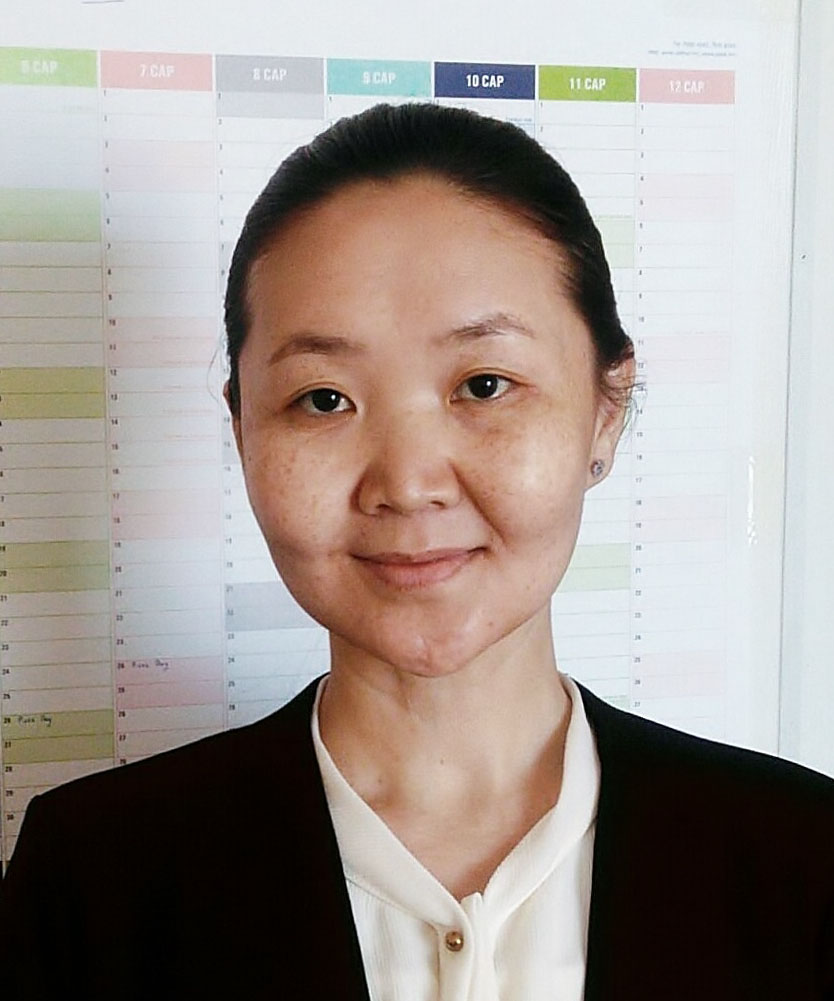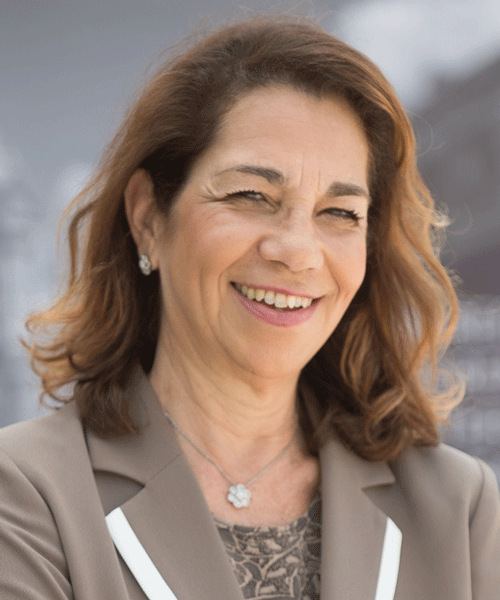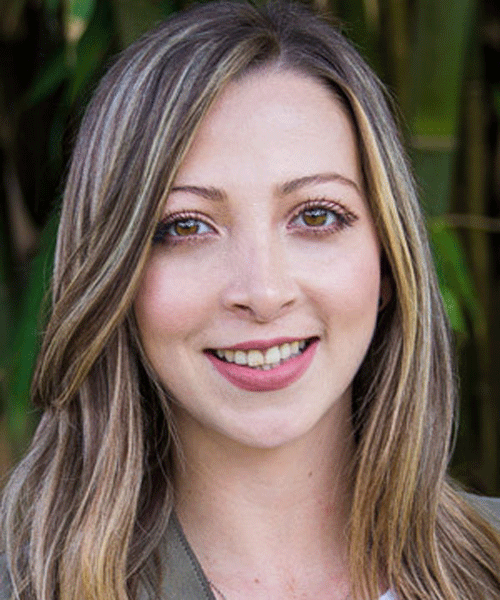
The coronavirus pandemic risks to shadow other longer-term challenges, such as deforestation, loss of biodiversity, massive urbanization, oceans' pollution and change of land use. Ignoring the messages that planet Earth is sending is not an option any longer.
What seems to be a lack of awareness at the global level is, nonetheless, balanced worldwide through successful efforts carried out by scientists who take action and work to build prosperity through focused research. Many of them are TWAS Fellows and Young Affiliates, and their investigation is essential because it addresses local problems impacting their communities. Let's see how three female scientists in Mongolia, Tunisia and Guatemala have used their knowledge for the benefit of their communities and, ultimately, of Mother Earth.
So far, so close (Mongolia)
"Mongolia is considered relatively uncontaminated from an environmental perspective. But human actions are causing rising damages to the environment, including desertification, deforestation, and air and water pollution in urban areas," said Munkhtsetseg Tsednee, a scientific researcher at the Institute of Chemistry and Chemical Technology of the Mongolian Academy of Sciences (MAS), in Ulaanbaatar, Mongolia, and a 2019 TWAS Young Affiliate. 
"Being elected a TWAS Young Affiliate offered a wonderful opportunity to build and develop my professional career: in 2020, I was appointed head of the laboratory at MAS, which has increased my visibility in Mongolia and internationally," she said.
Tsednee holds a PhD in biotechnology from the Academia Sinica, Taipei, Taiwan (2013) and has a background in chemistry. As a plant expert, she is interested in understanding how plants adapt to stress triggered by non-living factors (called abiotic stress) like drought, salinity, temperatures, heavy metals and lack of mineral nutrients.
Tsednee, however, is currently investigating another type of stress: livestock overgrazing and the poor management of grassland, which are the main factors damaging the Mongolian ecosystem. "Grasses and the grassland cover over 60 per cent of the Mongolian landscape, sustaining the pasture for domestic livestock," explained the scientist.
"And in 2019 and 2020, Mongolia was home to more than 60 million heads of livestock, which have played a critical role in altering the environment. Grassland damage and the degradation of pasture areas have therefore become an urgent problem in the country," Tsednee added.
To mitigate and restore the land and the ecosystem, the Government launched several action plans including the Green Development Policy and Mongolia Sustainable Development Vision 2030. More strategies are needed anyway. This is why after several years (2013–2019) spent among the Academia Sinica (Taipei), the University of California, and the University of Tokyo as a postdoctoral researcher, Tsednee returned to MAS in 2019, to study grazing-tolerant plants and the molecular mechanisms they exploit to survive under overgrazing conditions.
"In my current research with Dr. Indree Tuvshintogtokh’s team, I select both distasteful and attractive plant species to study the grazing effect—with and without livestock grazing—using chemical and biological experimental approaches," she explained.
"These physiological and biological studies are innovative and could lead to countering grassland degradation in our country. I'm thankful to TWAS for awarding me with a research grant in basic sciences (2020–2022): it's also thanks to the Academy's support that I am now conducting this research."
No water, no life (Tunisia)
Today, managing water and wastewater is an essential factor to protect the health, the environment, water supply and food security, especially in urban settings in the global South. There, the disparities between the wealthy and the poor, as well as overcrowding call for diversified approaches.
Akissa Bahri, an agricultural engineer by training and a TWAS Fellow since 2003 is a professor at the National Agricultural Institute of Tunisia. From 2005 to 2010, she was the Director for Africa at the International Water Management Institute, based in Accra, Ghana.
In 2009, she received the TWAS C.N.R. Rao Award for Scientific Research, and from 2010 to 2015 she served as the Coordinator of the African Water Facility at the African Development Bank.
Her longstanding experience in the management of water resources and in the agricultural use of marginal waters and urban sewage wastes, and their impacts on the environment, make Bahri a leading policy adviser on the matters.
"Tunisian waters have a high salt content because of the geology and the accumulation of salts by evaporation. Also, the salt-affected waters, when used for irrigation, impact heavily on soils, crops and groundwater," Bahri explained. "Land application of brackish and reclaimed waters, and sewage sludge may have environmental and health impacts that can be prevented with appropriate measures."
This is why during her scientific career Bahri committed (and succeeded) in defining best practices for the use of recycled waters, which the Tunisian Government turned into standards and directives to farmers for practical application.
From March until September 2020, during the first COVID outburst, she was in charge of Water Resources at the Ministry of Agriculture, Water Resources and Fisheries. "During those emergency days, our major concern was granting that all infrastructures and water-related facilities could work in order to prevent water shortages in the summertime, when water consumption peaks, and to ensure the timely implementation of ongoing projects like dams, desalination plants," she observed.
From September 2020 to February 2021, she served as the Minister of Agriculture, Water Resources and Fisheries of Tunisia and kept working on revising a new water law for her country. Now the law is with the Parliament, but Bahri continues to be active.
"Thousands of people lack access to safe water supply and sanitation in the peri-urban and rural areas in Tunisia, and many more in sub-Saharan Africa, where also electricity may be absent", she said, noting that many of them will never be connected to water networks or sewer systems because it is too expensive.
"I met many active women and biological farmers who can provide nature positive solutions to 'build back better' in a post-COVID world: they need support to develop healthier agrifood systems. Now I'm looking for funding for these alternative solutions. I have always in mind the central, transformative promise of the 2030 Agenda for Sustainable Development: Leave no one behind."
An Earth-friendly cup of coffee (Guatemala)
Coffee is an important commodity for Guatemala, representing around 2 per cent of Guatemala's Gross Domestic Product, covering more than 300,000 hectares and employing more than 300,000 families (Source: Food and Agriculture Administration). Coffee, however, together with other crops produced in the country, makes agriculture the second sector in terms of greenhouse gases emissions, after the energy sector. And it requires water to grow.
Countering air pollution, managing water resources, and preserving the soil are thus part of the same picture, in Guatemala. And they are all vulnerable to the effects of climate change.
Gabriela María Fuentes Braeuner is a 2019 TWAS Young Affiliate and, since 2018, the director of the Centre for Environmental Studies and Biodiversity, Universidad del Valle de Guatemala (CEAB-UVG). She carried out several studies that focus on strategies to reduce the impact of climate change in her country.
"Biodiversity protection, deforestation, water supplies and sustainable land use are all interconnected and affected by climate change," she explained. "According to projections made by the Economic Commission for Latin America and the Caribbean, for example, by the end of the century, we should expect reductions of up to 59 per cent in water supply, due to population growth and productive activities. We cannot wait any more."
Fuentes Braeuner started her scientific career as a forestry professional at her country's National Forest Institute (2010–2012), worked at CEAB-UVG (2014–2018), served as a consultant for Rainforest Alliance (2018), and then moved to the Sustainable Economic Observatory-UVG (2018–2019).
In 2017, she carried out a study in the Metropolitan Region of Guatemala finding out that the increase in water services to the population had triggered a decrease in groundwater levels in the wells, which were getting deeper. "The decrease in water resources represents a cross-cutting problem since water is vital for sectors such as agriculture, food, energy generation and health," she commented.
On another front, Fuentes Braeuner was an active component of a team that investigated the deforestation rate in Guatemala, to prevent further decrease in the number of trees. "We asked what were the reasons for the decrease and how many forests remain in the future if we fail to take action," she said.
It turned out that livestock, slash-and-burn techniques— felling and burning trees to clear land, especially for temporary agriculture—but also monocultures of only one type of crop are playing a major role.
"It's important that Guatemala applies protective actions, including strengthening of the Guatemalan System of Protected Areas, promoting the management of natural forests for both protection and production purposes, establishing forest plantations for energy purposes, restoring degraded areas and establishing agroforestry systems."
And she added: "I became part of the TWAS community only recently, and, at the end of 2019, I received the young scientist award for the Latin American region. This has given greater support and prestige to my work, both within the Academy, as well as with government actors and international cooperation. I hope I can be even more impactful in the years to come."
Cristina Serra
Why do we mark United Nations International Observances?
Within the United Nations extended family, including UNESCO and TWAS, International days, weeks and decades are occasions to educate the public on issues of concern, to mobilize political will and resources to address global problems, and to celebrate and reinforce achievements of humanity.

